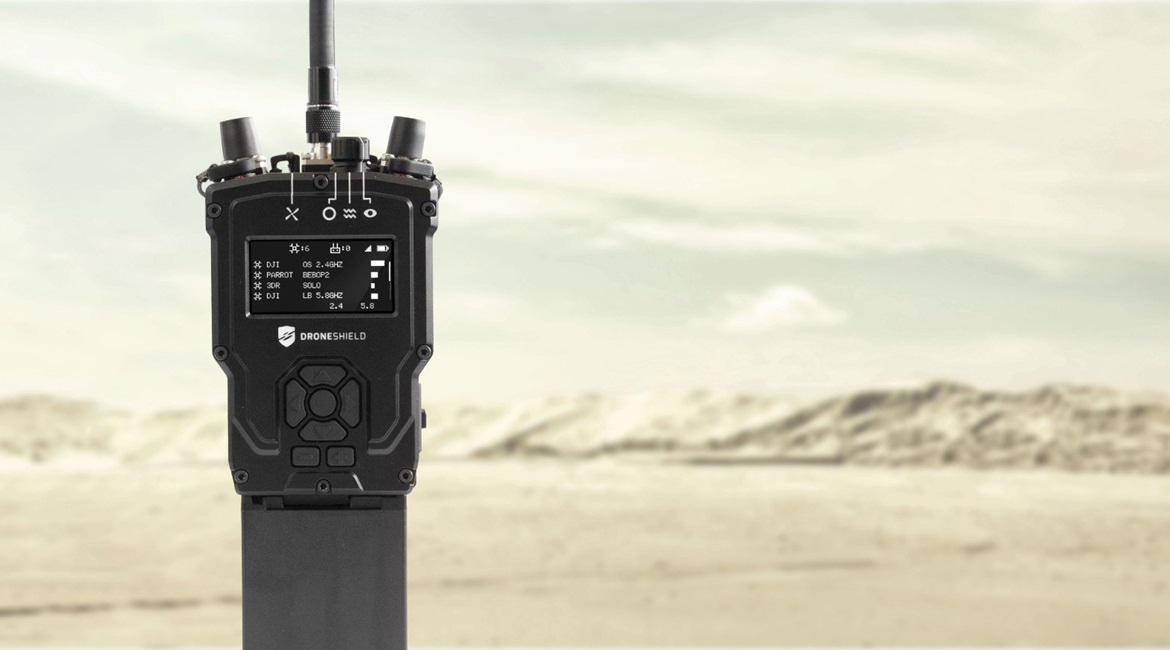
Australian firm DroneShield has released a new version of its wearable RfPatrol unmanned aerial system (UAS) detection device, with the latest system being smaller, lighter, and more advanced than its predecessor.
The RfPatrol MKII was announced on 20 April. The passive receiver is designed to detect communications between UASs and their operators, including the command signals, telemetry, location data, and video links that the UAS transmits in return.

DroneShield has unveiled a new version of its wearable RfPatrol UAS detection system. (DroneShield)
The new device is 40% smaller and about 20% lighter than its predecessor, said Oleg Vornik, DroneShield’s CEO.
The size and weight reductions have been achieved because “there’s a lot more technology packed inside the box”, while its shell has also moved from a composite plastic to an all-metal design for increased robustness.
RfPatrol MKII is designed to be “forward threat compatible”, Vornik told Jane’s , with its threat library capable of being updated remotely. It can also build awareness of its environment independently, he said.
“It can be left on a surface and passively collect [UAS] data, telling the users how many flights there have been in the past 24 hours, Vornik said, noting that the aim is to help build general threat awareness, as well as providing real-time alerts.
Like its predecessor, RfPatrol MkII has ‘glimpse’ and ‘stealth’ modes. The latter could be particularly useful for special-forces users, Vornik said, when they wish to hide their location: the device ensures that its screen does not illuminate or produce an audible alert when a threat is detected. Instead, a headphone earpiece might be used or the device could vibrate gently.
Looking to read the full article?
Gain unlimited access to Janes news and more...




